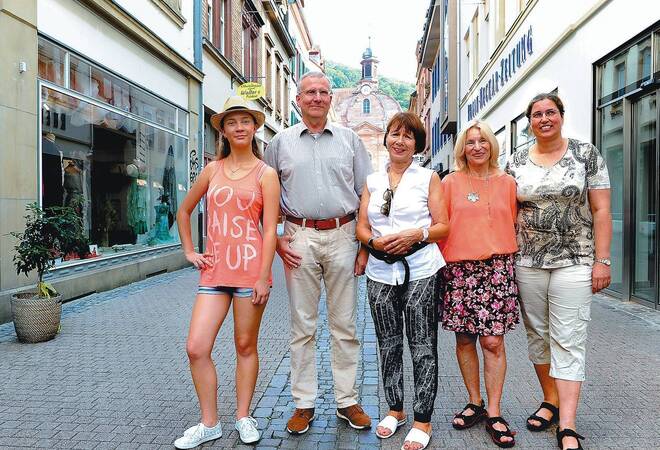The mayor of the German city of Heidelberg Eckart Würzner met to discuss “partnerships” and close cooperation with the city of Simferopol in occupied Crimea with Russian diplomats.
According to the report at the site of Heidelberg’s City Hall on February 3, the mayor met with the Consul of the Russian Federation Aleksandr Bulayev and the representative of the Association of the Russian Economy in Germany Sergei Rodionov.
During the meeting, the mayor of Heidelberg urged to establish closer relations with Russia, its cities, such as exchanges between students. Among other issues of “the long-standing and good contacts of the city with Russia,” issues of Heidelberg’s cooperation with the Crimean city of Simferopol were discussed (Simferopol became a sister city of Heidelberg during the times of independent Ukraine).
Mr.Würzner, in particular, emphasized how his city is interested in maintaining contacts and friendly relations between the residents of Heidelberg and the inhabitants of its sister city Simferopol. “It is important that people with Heidelberg and Simferopol communicate. We want to return from Simferopol cooperation in specific projects in culture,” said the mayor.
This is not the first initiative to restore ties with the city of Simferopol of occupied Crimea, which was unlawfully annexed from Ukraine by Russia in 2014. A delegation of Heidelberg tourists from the municipal-funded “Circle of friends of Heidelberg and Simferopol” visited Simferopol in June 2015, as reported by the regional outlet rnz.de.

On their site, the “Circle of friends” states that they want to stay away from politics and cooperate at the community level. However, it’s clear that by this they mean cooperation only with the inhabitants of Simferopol that endorse the illegal annexation of their homeland. “While the Tatars were very cautious and spoke of ‘occupation,’ the Russians, who make up the majority of the population, called the same process ‘liberation’ and ‘reunification.’ Regardless of what people think of the changes, the club’s chairman makes one thing unmistakably clear: ‘It is very important that the friendship will continue’,” is an example of their publications.
One might wonder why the Club is not interested in the multiple instances of persecution, kidnapping, killing, and imprisonment of Crimea’s indigenous population that comes as a retribution for their opposition for the occupation of their homeland, the latest of which is the initiation of a process to ban their representative organ, the Mejlis.. Neither are they interested in the residents of Simferopol that were forced to flee to Ukraine following the occupation of the peninsula by unmarked Russian troops and a referendum which was condemned by the vast majority of the world’s countries, including Germany.
By cooperating in culture and education initiatives with the occupied city of Simferopol, the “Circle of friends” not only endorses Russia’s open occupation of Ukraine’s peninsula of Crimea by legitimizing its self-proclaimed Russian-installed government, but also supports Russia’s covert war in Donbas. After all, nothing is wrong, and life goes on. No matter if Russia’s actions have taken away over 10,000 of lives in Ukraine and forced over 1mn people to flee from the war.
Two parallel foreign policies: official government position vs. local politicians and business
Instances when local politicians and businesses of Western Europe end up living in a parallel reality with the official position of their governments turn up more and more often. Just days ago, the French mayor of Nice Cristian Estrosi signed a letter of intention with the Crimean city of Yalta in the presence of the ambassador of Russia to France. Commenting on the visit, the French embassy said that “the initiative of the local deputy (mayor of Nice) does not place any obligations on France” and that “France’s position is clear and unchanged: together with the EU and all the international community, France does not recognize the illegal annexation of Crimea.”
Meanwhile, the German company Siemens has found a way to return to “business as usual” by selling power generators to occupied Crimea, which is in dire need of electricity after its supply was cut off from mainland Ukraine.
Fax (City of Heidelberg): 06221 58-10900
In February 2014, unmarked Russian soldiers occupied Ukrainian territory and initiated the takeover of government buildings in the Crimean peninsula. On 16 March 2014, a so-called “referendum” was held in Crimea, following which the territory was attached to Russia. On 24 March 2014, 100 countries, including France, adopted the UN Resolution 68/262 that affirms the territorial integrity of Ukraine.
After Russia’s illegal annexation of Crimea, the self-proclaimed authorities had engaged in numerous repressions against its indigenous population, the Crimean Tatars, which some commentators have called a “hybrid genocide.”






